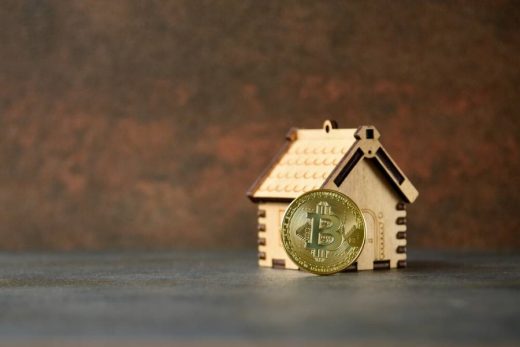Real Estate Tokenization: A Brief Guide
Real Estate Tokenization: A Brief Guide

Real Estate Tokenization refers to the division of a property into tradable shares or digital assets on a blockchain network. Many countries and regulatory bodies are making legislative changes to create a friendly business environment for the tokenization of real estate assets.
Some of the Pros of Tokenizing Real Estate
- The property developers gain access to additional amounts of capital as they can fractionalize a property efficiently. This facilitates more participation from investors leading to greater capital inflow in a project by reducing the barriers.
- The price of the asset will be quite close to its real market value as the illiquidity discounts will be significantly decreased. A lot of assets can be easily traded at low fees by potential investors in the secondary market.
- Real-time pricing information can be obtained from the order books. Cumbersome paper-based systems that share data asymmetrically, need not be relied upon anymore. This ensures that better trading deals are discovered by investors on a timely basis.
- Investors can experience a higher level of transparency as the blockchain-based system will be updated regularly to know their rights and restrictions related to the use of the tokenized digital asset. They will know the value of the underlying property beforehand.
- Various overhead expenses will be reduced and settlement of funds will be done faster. The entire governance of the platform is taken digital and happens automatically. Real Estate Tokenization removes the role of intermediaries like brokers and agents.
- Wealthy investors can effectively diversify their portfolios by investing in multiple properties around the globe and enjoy the benefits of higher returns.
- The chances of fraud are decreased as a transaction that is recorded on the blockchain network cannot be changed by anyone. This establishes more trust and confidence in the minds of property investors.
- Real estate tokens are financially supported by real-world assets. They are less risky when compared to volatile cryptocurrencies or some dubious ICO’s.
- Prompt checks and balances are ensured to maintain stability so that the value of the security token does not fall below the net asset value (NAV) of the real estate asset.
How to Tokenize Real Estate Assets Through a Well-Defined Procedure?
- Deal structuring is the initial phase where different factors like the type of asset, the kinds of shareholders, and the relevant regulations will play a big role. Property developers will ensure that adequate liquidity is available for the current set of investors before raising money for launching new development projects. The owners of assets must decide the type of property that they wish to digitize, form either a Special Purpose Vehicle (SPV), or become a part of a Real Estate Fund or a Real Estate Investment Trust (REIT).
- The shareholders will have to be given various rights like dividends, a share in the equity, and taking part in the governance of the property. The execution will depend on the property’s location, the total fundraising expected, the taxation for the tokens, solicitation restrictions, and the type of investors.
- The second phase involves the selection of the right real estate tokenization platform for Tokenizing your Real Estate properties. A suitable blockchain network must be chosen for creating the token, a secure custody solution is needed to store the tokens safely, KYC/AML verification of the investors is required, and the digital securities can be offered to the prospective investors either via primary issuance or the leading secondary exchanges. Tokens are mostly launched on well-known blockchain networks like Ethereum, Hyperledger, Tezos, or Stellar that offer a reliable tokenization platform.
- The third and final phase revolves around token creation and distribution. Different kinds of payment methods like fiat currencies, cryptocurrencies, and stablecoins must be accepted from the investors for buying the digital tokens. The total supply of the tokens must be finalized and additional tokens can be minted based on the operational requirements and the sentiment from the investors.
A digital wallet available on both web and mobile is needed for the investors to store their tokens. The tokens can be sold to the investors by conducting a live sale. You can view the cap table that contains details of the hard cap and the soft cap to see how you are progressing in your fundraising campaign. - The other factors to take into account are the formulation of a corporate code, mortgage issues, tracking all the activities of the token holders regularly, and dealing with legal issues.
Why Digitization of Real Estate Assets Represents the Future?

- It brings many improvements to the conventional real estate industry by rendering more liquidity opportunities, ensuring better market transparency, reliable tracking of ownership, and enabling real-time investing processes.
- It needs more cooperation from blockchain developers, tax experts, accountants, lawyers, and real estate professionals to ensure the successful launch of a token without risk.
- Regulatory uncertainty is a big challenge that affects the mindset of investors who wish to trade.
- Though a tokenized Commercial real estate asset (blockchainappfactory dotcom — see below) promises a higher level of liquidity, token holders need to be updated on the assets they hold and the different risks that affect their value.
- Since tokens can be exchanged on a real-time basis, it leads to better opportunities for ambitious and innovative Real estate developments.
- Real estate tokenization can compete with other popular fundraising substitutes like private equity and venture capital.
- The USA, Europe, and some parts of Asia have dealt well with the economic and technological aspects of Tokenizing Real Estate.
- In the next 5 years, Tokenization is expected to yield a whopping $ 4.2 billion for the global real estate industry.
As seen above, we have experienced how to digitize Real estate. The market conditions are rapidly changing as access is no longer limited only to the elite groups of investors.
Developers can raise capital with more freedom and flexibility, investors can move their funds efficiently, and property owners can manage their equity more effectively. Real estate tokenization backed by blockchain technology will become the order of the future.
Blockchain technology plays a prominent role in the digitization of real-world assets. Tokenization platform offers a vast liquidity solution with its significant features.
Real estate is a phenomenal sector where the investors get their traction of passive income.
Blockchain App factory, a blockchain development company offers hassle-free tokenization solutions for your real estate properties and other physical assets with its reliable tokenization platform.
The post Real Estate Tokenization: A Brief Guide appeared first on ReadWrite.
(81)


